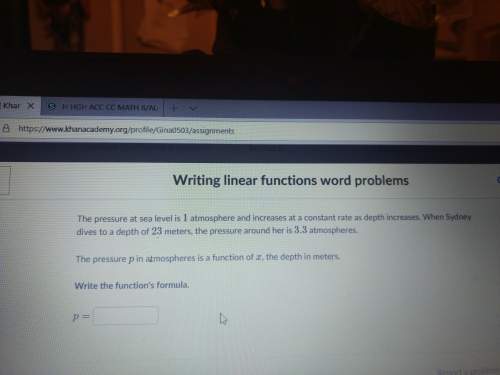
English, 18.09.2021 20:10 fatimaramosc11ouv4s2
“Once doesn't form a habit, Juan thought as he left the chief's
office, and when they transferred him to Section J where they unfold the
letters with infinite care to see if they contain poisonous powder, he felt
that he had ascended a step and could return to his healthy habit of not getting involved in external affairs” He think he's making
the right choice by turning in the letter but in the reality he's making the
wrong decision because it's dangerous for him as people has been
poisoned with poisoned powder.
“Naturally he condemned it without remorse. And just as naturally
I
he couldn't prevent them from executing him at dawn, one more victim
of his devotion to work.” Since he sent the letter he thinks it's right one
because but in reality It was the wrong decision because when Juan
found his letter to Mariana he censored it without regret. However he got
imprison and got executed the next day from not doing his job correctly.
Can someone help me explain my quote that supports my theme “ Sometimes when we think we’re making the right choices we’re making the wrong ones.”

Answers: 2


Another question on English

English, 22.06.2019 01:50
Which type of writing is best illustrated in a venn diagram? chronological order fact and opinion comparison and contrast cause and effect
Answers: 1

English, 22.06.2019 03:00
Hey guys..what is the meanings of these word : 1 mazdoori2 rozznamccheplz answer fast
Answers: 2

English, 22.06.2019 04:50
Read the passage, then answer the question that follows. no one could have seen it at the time, but the invention of beet sugar was not just a challenge to cane. it was a hint—just a glimpse, like a twist that comes about two thirds of the way through a movie—that the end of the age of sugar was in sight. for beet sugar showed that in order to create that perfect sweetness you did not need slaves, you did not need plantations, in fact you did not even need cane. beet sugar was a foreshadowing of what we have today: the age of science, in which sweetness is a product of chemistry, not whips. in 1854 only 11 percent of world sugar production came from beets. by 1899 the percentage had risen to about 65 percent. and beet sugar was just the first challenge to cane. by 1879 chemists discovered saccharine—a laboratory-created substance that is several hundred times sweeter than natural sugar. today the sweeteners used in the foods you eat may come from corn (high-fructose corn syrup), from fruit (fructose), or directly from the lab (for example, aspartame, invented in 1965, or sucralose—splenda—created in 1976). brazil is the land that imported more africans than any other to work on sugar plantations, and in brazil the soil is still perfect for sugar. cane grows in brazil today, but not always for sugar. instead, cane is often used to create ethanol, much as corn farmers in america now convert their harvest into fuel. –sugar changed the world, marc aronson and marina budhos how does this passage support the claim that sugar was tied to the struggle for freedom? it shows that the invention of beet sugar created competition for cane sugar. it shows that technology had a role in changing how we sweeten our foods. it shows that the beet sugar trade provided jobs for formerly enslaved workers. it shows that sweeteners did not need to be the product of sugar plantations and slavery.
Answers: 1

English, 22.06.2019 07:00
Pls pls pls i will give u brainliest in the story open window, what is the significance of the open window?
Answers: 1
You know the right answer?
“Once doesn't form a habit, Juan thought as he left the chief's
office, and when they transferred...
Questions

Computers and Technology, 13.11.2020 17:10



Mathematics, 13.11.2020 17:10



Mathematics, 13.11.2020 17:10


Mathematics, 13.11.2020 17:10

Physics, 13.11.2020 17:10

Mathematics, 13.11.2020 17:10

Computers and Technology, 13.11.2020 17:10


Mathematics, 13.11.2020 17:10











